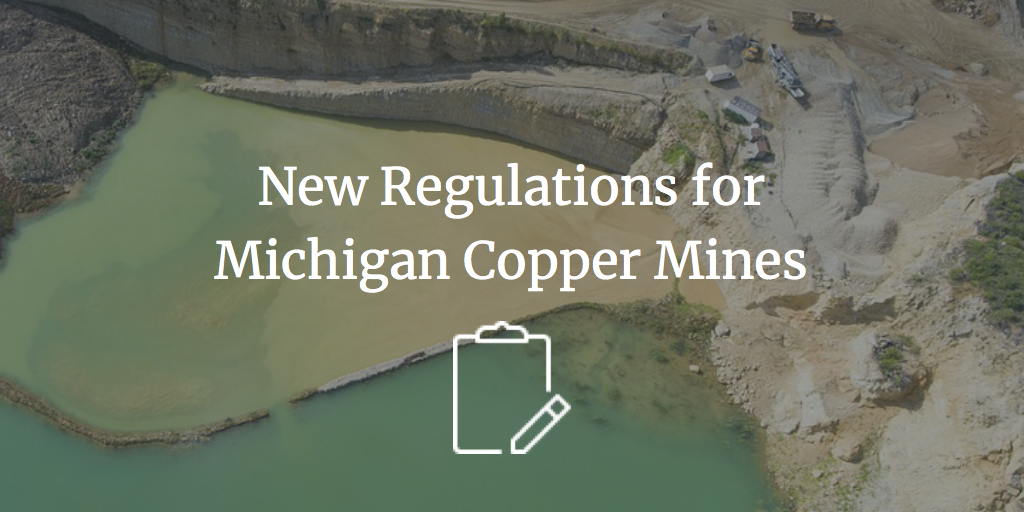Signed into law on May 30, 2017, Michigan Senate Bill 129 establishes new licensing and financial assurance requirements for small native copper mines. The new law requires, among other things, that mine operators must post a $50,000 bond with the Department of Environmental Quality for each mine to secure the reclamation of the site. If the operator fails to perform the reclamation, the Department may enter the site to perform the reclamation following a 90 day period in which the operator or the surety will have the opportunity to execute proper reclamation. The operator and the surety will be liable for any costs the Department incurs by performing the reclamation. The surety will have 30 days to pay any claims presented to it.
A Brief History of Michigan Mines
Although the industry has been on a decline over the past few years, the mining industry has a long history. It represents a significant component of Michigan’s heritage and economy. In the early 2000s, as new mining opportunities arose, concerns also arose that some operations might have a greater risk of impact on the environment and nearby communities than previous mines did.
When the Natural Resources and Environmental Protection Act (NREPA) enacted in the mid-1990s, it rearranged a number of existing laws. This includes what is now Part 632, concerning Ferrous Mineral Mining. Part 631 regulates iron mining, focused on reclamation and does not address water quality and contamination issues. Many believed that these mining provisions of Michigan law were insufficient to regulate the mining of all nonferrous metallic minerals. In response, Public Act 449 of 2004 added Part 632 to NREPA to regulate this activity separately from ferrous mining. Since then, additional statutes passed to regulate the mining industry in Michigan.
Reasons Behind Michigan’s New Mining Laws
Michigan’s Senate Bill 129 was first introduced by Senator Tom Casperson on February 9, 2017. The goal of this bill was to establish regulations for small native copper mining operations. However, the act was put in place to do more than simply regulate those who work in copper mines. Upon passage, the act also established the following amendments, as they relate to copper mines:
- Protect the environment and natural resources of Michigan
- Revise and classify laws relating to the environment and natural resources of the state
- Regulate the use of certain lands, waters, and other natural resources of the state
- Provide for certain charges, fees, assessments, and donations
Because the bill added Part 634 to the Natural Resources and Environmental Protection Act to establish regulations specific to elemental copper mining operations, the recent legislation passed a number of specific implementations that are also in effect.
Need to get your reclamation bond for copper mines?
If you need to find out what you’ll pay for your surety bond, give SuretyBonds.com a call at 1 (800) 308-4358 or fill out an application online to get your free, no obligation quote today.
